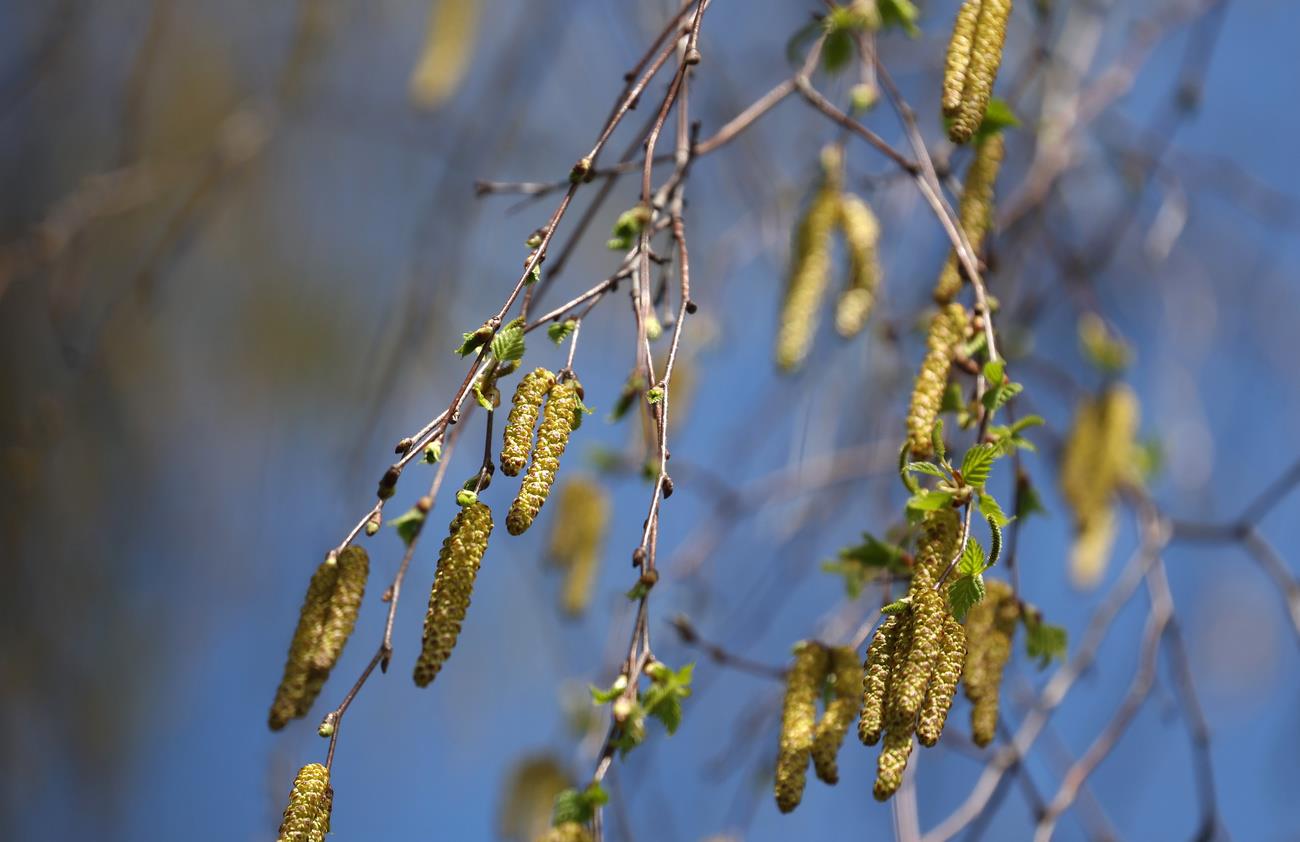
City Dwellers More Likely To Suffer From Hay Fever, Study Shows
Antihistamine enters wastewater via urine, said Peter Schmid-Grendelmeier from the University of Zurich in an interview with the Neue Zürcher Zeitung on Saturday. The results of his study, conducted along with the Swiss Federal Institute of Aquatic Science and Technology (Eawag), have not yet been published.
Researchers also noticed the increase in antihistamines at an unusual time:“alder and hazel trees were not yet pollinating, while birch pollen was not yet measurable”, Schmid-Grendelmeier said.
According to the dermatology professor, it hasn't yet been possible to explain what triggered an allergy in many people at that time.“There may be a tree species that we haven't yet had on the radar,” he said.
+ Read more: Swiss technology to fine-tune pollen forecasts
'Aggressive pollen'The study also shows a gap between urban and rural areas when it comes to hay fever, with city dwellers more exposed – partly due to“more aggressive” pollens.
“For example, birch trees that grow in towns contain around twice as many allergens as birch trees in the countryside,” Schmid-Grendelmeier said. The protein responsible for sparking the allergy is a“stress” protein, and tees exposed to too much exhaust fumes, for example, produce more of it, he said.
Exhaust fumes and traffic-related pollutants can also irritate the mucous membranes in humans, which further explains why city-dwellers are more at risk.
DesensitisationDuring an allergic reaction, the body releases a chemical mediator – histamine – which then causes symptoms such as a runny nose or red eyes. Antihistamines block the histamine receptors in the body, said Schmid-Grendelmeier.
In severe cases, pollen can also cause breathing difficulties. In such instances patients are advised to see a doctor for desensitisation treatment, which aims to“switch the immune system from hypersensitivity to tolerance,” the expert added.
The next opportunity to start such a treatment will be in autumn – before the next pollen season.
Adapted from French by DeepL/dos
This news story has been written and carefully fact-checked by an external editorial team. At SWI swissinfo we select the most relevant news for an international audience and use automatic translation tools such as DeepL to translate it into English. Providing you with automatically translated news gives us the time to write more in-depth articles.
If you want to know more about how we work, have a look
here ,
and if you have feedback on this news story please write to
... .
Get the most important news from Switzerland in your inbox.
Daily
EmailThe SBC Privacy Policy provides additional information on how your data is processed.
I consent to the use of my data for the SWI swissinfo newsletter.
In compliance with the JTI standards
More: SWI swissinfo certified by the Journalism Trust Initiative
You can find an overview of ongoing debates with our journalists here . Please join us!
If you want to start a conversation about a topic raised in this article or want to report factual errors, email us at ... .

Legal Disclaimer:
MENAFN provides the
information “as is” without warranty of any kind. We do not accept
any responsibility or liability for the accuracy, content, images,
videos, licenses, completeness, legality, or reliability of the information
contained in this article. If you have any complaints or copyright
issues related to this article, kindly contact the provider above.


















Comments
No comment